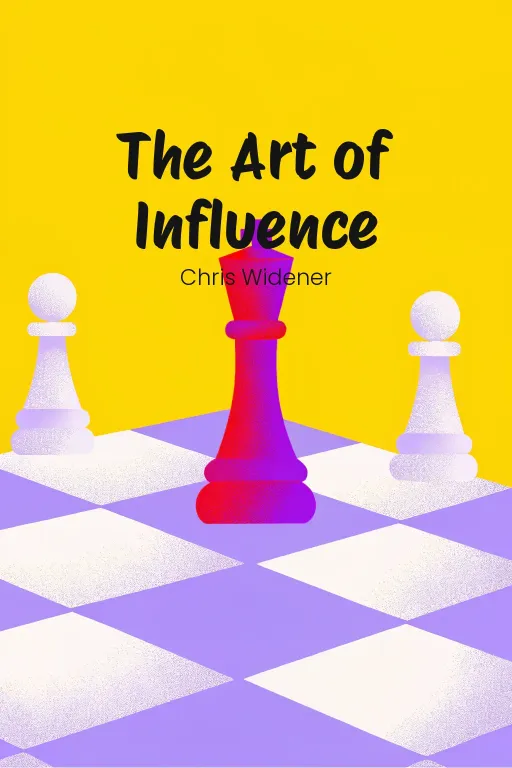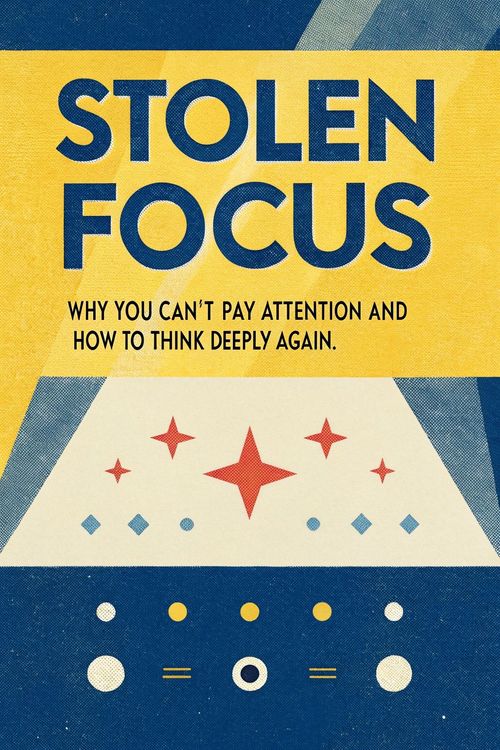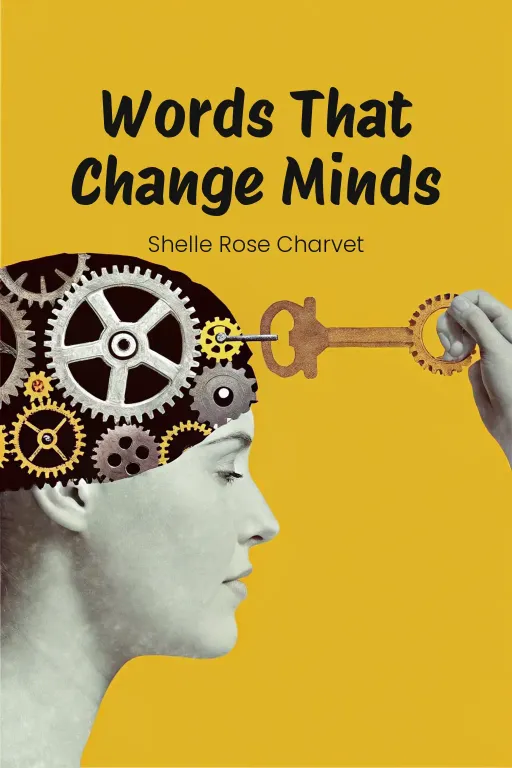
Be the Leader Others Crave
Podcast by Beta You with Alex and Michelle
Persuading Others Begins With You
Introduction
Part 1
Alex: Hey everyone, welcome to the show! I want to kick things off with something I've been pondering: What if real influence isn't about getting people to do what you want, but about becoming the kind of person people want to follow? Michelle: Ah, so you're saying it's not about aggressive sales tactics or power plays? Intriguing. So, Alex, what's the secret sauce here? Alex: Well, that's exactly what we're diving into today. We're talking about The Art of Influence by Chris Widener. The book basically flips the script on what we think influence is, arguing it's all about building genuine connections and solid character. The book tells a these ideas through a story, the story of Michelleus Drake, a driven entrepreneur, and his mentor Bobby Gold, a super successful, wise billionaire. And through them, we learn the secret of influence: the Four Golden Rules: integrity, positivity, empathy, and striving for excellence. Michelle: Okay, so the takeaway is, "Be a good person?" Sounds a bit… Hallmark-ish, doesn't it? Alex: <Laughs> I get why you'd say that, but it's actually way more practical than that. Widener frames influence as a long game, not a series of quick hacks. It's a whole process. And today, we're going to unpack it in three parts. First, diving into the core difference between influence and persuasion; then, we'll break down those Golden Rules, exploring why each one matters; and finally, we’ll discuss how your personal growth—emotionally, intellectually, even spiritually—impacts your ability to lead effectively. Michelle: Okay, I'm tracking. So, this isn't just about getting ahead, but, uh, becoming someone others want to follow, right? Alex: Precisely! Influence isn't just about the destination; it's about how you uplift others along the way. Ready to jump in? Michelle: Alright, I'm game... especially if I get to poke holes in a billionaire's advice on staying positive.
The Essence of Influence
Part 2
Alex: Okay, let's start with the basics... what truly separates influence from simple persuasion? It’s a key distinction, and Bobby Gold hammers this home to Michelleus Drake throughout the book. Persuasion, you see, often involves specific tactics aimed at immediate results. Influence? It's much deeper. It’s rooted in who you are as a person, the level of trust you cultivate, and the quality of the relationships you build over time. Simply put, influence isn't about those quick wins; it's about making a lasting impact. Michelle: Ah, so persuasion is like that quick marketing blitz, while influence is the brand that lasts for generations. Right? Alex: Exactly! Bobby actually describes persuasion as more transactional—like pushing a product to meet a sales target or convincing someone to agree with you at a meeting. Influence, however, is transformative. It shapes your character, your relationships, even the community around you. It's not about "getting" someone to do something; it's about becoming the kind of person people want to follow, someone they intrinsically trust and connect with. Michelle: I see. But here’s the million-dollar question: if influence is as simple as being trustworthy and relatable, then why isn't everyone influential? What’s the secret sauce that makes it so elusive? Alex: Because it all comes down to authentic consistency, and that's a tough ask in today's world. Bobby emphasizes that influence arises from genuinely living your values, not just talking about them. That's where his Four Golden Rules—integrity, positivity, empathy, and excellence—come into play. Think of each rule as a pillar supporting the foundation of true influence. Michelle: Alright, let’s break down these Golden Rules, starting with integrity. It’s a word that’s thrown around so much these days. What exactly does the book say about why it's absolutely crucial? Alex: Integrity is the bedrock for everything else. Because without it, you simply can’t build trust. Bobby tells Michelleus that integrity means consistently aligning your actions with your values, even when it’s inconvenient, even when it’s hard. It’s about showing up as the same person, no matter the scenario—be it a high-stakes boardroom meeting or a casual chat with a friend. Michelle: Okay, but let’s make this less abstract. Can you give me a concrete example of how Bobby demonstrates integrity in the book? Alex: Of course! There's this great scene where Bobby is reviewing critical business issues with his team in a stadium – so you can imagine how chaotic it is. Despite the urgency, he makes it a point to stop and acknowledge each team member, showing them his gratitude. He doesn’t use his billionaire status as an excuse to brush them aside. Instead, he treats everyone with respect and appreciation. That consistency—living his values even under pressure—builds trust and credibility. People admire and follow him not just because he’s wealthy or powerful, but because they see that his actions match his words. Michelle: Right, he’s not just paying lip service. Got it. Next up: positivity. Now, this one sounds almost…too simple. Can you just slap on a smile and call it a day? Alex: Not at all. Positivity, as Bobby defines it, isn’t about superficial cheerfulness. It’s about maintaining a constructive outlook, even—and especially—when facing adversity. It radiates confidence and inspires those around you to see opportunities where others see only obstacles. Think about it: who would you rather follow – someone who just complains, or someone who actively searches for solutions? Michelle: Okay, let’s put that to the test with an actual story from the book. How does positivity directly impact Michelleus? Alex: Absolutely! Michelleus remembers his grandmother Beatrice, who lived a modest life but always radiated positivity. She saw potential in him that he didn’t even see in himself, and she was the one who pushed him to connect with Bobby Gold – a connection that completely changed his life. Her optimism wasn't passive; it was paired with action. By believing in his exciting possibilities, she influenced him to believe in his own potential, and that made all the difference. Michelle: That’s powerful. It’s like her positivity sparked something bigger. Alright, let’s jump to empathy – a rule that, let’s be honest, doesn’t always come naturally to every entrepreneur. What’s Bobby's take on this? Alex: Empathy, according to Bobby, is essential for building bridges. It’s about genuinely understanding and valuing other people’s perspectives. Leaders who lack empathy might get short-term gains, but they'll struggle to build lasting, meaningful relationships. And that’s where true influence thrives—in those deep, emotional connections. Michelle: Lay it on me. How does he actually demonstrate empathy in the book? What does Bobby’s “masterclass in empathy” look like? Alex: There's a significant scene where Bobby and Michelleus are on a private jet discussing Michelleus’s future. Bobby doesn't dominate the conversation or just lecture him. Instead, he actively listens—really listens—to Michelleus’s goals and concerns. By putting himself in Michelleus’s shoes, he creates a safe space built on trust and understanding. That allows for true mentorship to flourish. Empathy, at its core, is what makes trust is possible. Michelle: Okay, I can see that. You're more likely to trust someone who actually tries to understand you, rather than someone who just dishes out orders and advice. Now, what about excellence? This one sounds a lot like “work harder,” which feels pretty obvious. Alex: It's more nuanced than that. Excellence isn’t just about working hard; it’s about having a relentless commitment to improve and produce outstanding results. Bobby tells Michelleus that excellence is a journey, not a destination. It’s about constantly pushing your own boundaries and striving to elevate your character, your skills, and your contributions. Michelle: And this is where Bobby’s billionaire status comes into play, right? What about his own chase for excellence? Alex: He shares how his dedication to growth—whether refining his business knowledge or leadership abilities—helped him achieve success. But for Bobby, it’s not limited to professional accomplishments; it’s about building a legacy. His commitment to excellence doesn’t stop at the bottom line. It’s about making lasting contributions that inspire and uplift others. Michelle: So excellence ties it all together. It's not just about being good at what you do, but about doing it in a way that aligns with the other principles – integrity, positivity, and empathy. You can’t “really” fake real character. Alex: Exactly. Excellence becomes the visible expression of your inner principles, and that’s ultimately what people admire, respect, and follow. Michelle: Alright, now I’m starting to get the picture. Influence is less about flexing power and more about embodying values that people naturally gravitate toward. It’s a compelling idea, assuming, of course, that Bobby Gold can be trusted.
Key Principles of Influence
Part 3
Alex: Understanding the core of influence naturally leads us to explore the foundational principles that guide its application. This is where we start turning ideas from the book into real, actionable steps for personal and professional growth. Michelle: Ah, so we’re moving from the "why" of influence to the "how." Let me guess – we’re diving into Bobby Gold’s golden rules, right? Alex: Exactly! These key principles—like the difference between persuasion and influence, the importance of personal character, and emotional intelligence—are the backbone of Bobby’s mentorship. They're not just abstract ideals; they're part of how Bobby lives, works with his team, and mentors Michelleus. So, let's start with the big one: understanding how influence differs from persuasion. Michelle: Okay, I’ll jump in. Bobby frames persuasion as more of a tactical exercise, aimed at immediate results, while influence is a deeper, character-driven approach that builds trust over time. Bobby even compares persuasion to a “targeted attack.” It doesn’t sound all that flattering! What exactly does he mean by that? Alex: Bobby’s point is that persuasion is often narrow and one-sided. It’s about achieving a specific goal—getting a sale, securing a yes—without really considering the other person's long-term needs or interests. It’s transactional, you know? But influence? It’s about cultivating trust and respect, which leads to alignment rather than just agreement. Bobby’s quote sums it up beautifully: “Influence is not about convincing people to say yes—it’s about creating mutual respect and alignment.” Michelle: And for Michelleus, wasn’t this like, a complete mindset shift? He starts out thinking his entrepreneurial success is all about perfecting negotiation tactics, right? Alex: Exactly. There’s this pivotal moment on Bobby’s private jet where they’re discussing these ideas, and Michelleus realizes that his obsession with being persuasive has been holding him back. Bobby reframes it by saying that persuasion might get you in the door, but influence, built on trust and authentic relationships, is what keeps people walking alongside you. That’s when Michelleus begins to understand that influence is about consistent leadership, not just clever pitches. Michelle: So, influence isn't just a fancier word for persuasion—it fundamentally relies on who you are rather than what you do. Got it. Let’s dig into what makes that possible. The first golden rule is integrity, which, as you said, is about aligning your actions with your values. But let’s be real—how often do leaders actually achieve that? Alex: It's definitely easier said than done, which is why Bobby emphasizes it so much. Trust is earned, not given, and it's earned through consistency. There’s this great scene where Bobby takes Michelleus to a dinner with his inner circle of trusted colleagues at a stadium. Even while discussing high-stakes business deals, Bobby pauses to personally thank each member of his team for their contributions. It’s a small gesture, but profound—it shows that he genuinely values the people around him, not just for their work, but for who they are. Michelle: So it’s small, consistent actions that reinforce your values and build trust over time. I guess it’s not about grand speeches, but showing up in small, meaningful ways. Alex: Exactly. Bobby’s actions aren't just for show; they’re rooted in who he is. That’s the essence of integrity—aligning what you say with what you do. And without it, influence crumbles because no one wants to follow someone they can’t trust. Michelle: Makes sense. Now let’s talk about the golden rule I think is the hardest to pin down: empathy. Everyone agrees it's important, but how does a billionaire like Bobby Gold actually apply something as…soft as empathy to something as hard-edged as leadership? Alex: Bobby shows empathy in both simple and profound ways. One of the most memorable examples is during that private jet scene we mentioned. Instead of dictating what Michelleus should do or giving pre-packaged advice, Bobby takes the time to listen. He creates a space for Michelleus to share his fears, dreams, and doubts without judgment. That act of active listening isn’t just about making Michelleus feel heard—it’s about understanding his deeper motivations and helping him discover his own answers. Michelle: That’s an interesting take. Mentorship not as a one-way street, but as a collaborative process. I suppose it is also a way to foster loyalty. I mean, if someone feels genuinely heard, they’re probably far more likely to trust you. Alex: Exactly! Empathy creates connection. Leaders who lack empathy might achieve short-term results through authority or power, but they’ll struggle to inspire lasting loyalty. Bobby’s empathetic approach makes Michelleus feel valued, and it helps deepen their mentor-mentee bond. Michelle: Alright, I see how integrity and empathy work together – one builds trust, the other strengthens the connection. But here’s where I'm curious: How does excellence fit in? Isn’t excellence usually about achievement, while the other two focus more on character and relationships? Alex: Not exactly. Excellence ties everything together by making sure that what you do reflects who you are. Bobby tells Michelleus that striving for excellence isn’t just about winning or achieving—it’s about pushing yourself to grow, to constantly refine your skills and contributions, and to raise the bar for yourself and those around you. Michelle: So, it’s not just a pursuit but a process, aimed at constant improvement. Does the book give us any tangible ways to put this into practice? Alex: Absolutely. For Bobby, excellence isn’t measured purely by success metrics. It’s reflected in the legacy you create and the value you offer to others. He shares how he worked relentlessly, not just to grow his business, but to create opportunities for his team and contribute positively to his community. That’s what makes his influence so enduring—it’s rooted in excellence that serves a purpose larger than himself. Michelle: Okay, now this is all making sense. These principles aren’t isolated—they’re like gears in a machine. Integrity ensures trust, empathy builds connection, and excellence drives both self-respect and external respect. Alex: You’ve got it. Influence doesn’t exist in a vacuum—it’s a fusion of your values, your actions, and how you impact the people around you. Together, these principles form what Bobby calls transformative leadership, where success is measured not just by personal gains but by how you elevate others. Michelle: Alright, consider me inspired... at least tentatively. Influence clearly isn't about big speeches or flashy moves—it's about consistency, empathy, and purpose-driven growth.
Holistic Personal Growth for Influence
Part 4
Alex: So, with those principles in mind, we then look at how personal growth across all these different areas actually boosts your ability to influence others. The book really takes those basic ideas of character and connection and blows them out into a much bigger picture of personal development. It's not enough to just be a good person with empathy, integrity, and strive for excellence; you've got to bring those qualities to every aspect of your life – physical, emotional, intellectual, spiritual, relationships, money, and even giving back. Michelle: Okay, so basically, no pressure – we just need to be perfect in every possible way, right? Alex: <Laughs> Not exactly! It's more about being deliberate and intentional. Bobby Gold shows young Michelleus that real influence isn't just one thing. It really comes from developing yourself across all those areas of your life. It's really the big takeaway of the book—how becoming a well-rounded person makes you truly influential. Michelle: Okay, fair enough. Let’s break these down one by one. I think the first one you mentioned was physical appearance, right? Now, that sounds kinda superficial at first glance, doesn't it? Alex: I get why you'd say that, but Bobby actually argues the opposite. It's not about chasing some crazy beauty standard; it's about showing respect for yourself, which sends a message to others, too. Think about how Bobby describes his own journey. Early on, he didn't bother with fitness or grooming. He was talented and driven, so why bother, right? But he realized that neglecting his health didn't just affect how people saw him – it affected his energy, his confidence, and ultimately, his ability to lead. Michelle: So it's less about, you know, vanity and more about having the energy to show up fully for the people you're trying to influence? Alex: Exactly! It's about showing that you're intentional in how you present yourself. But it's not just about wearing fancy clothes or something—it could be as simple as being professional and composed. The idea is to respect the people you're meeting and the opportunities you have by showing your best self. Michelle: Right, makes sense. So, no more excuses for messy hair at meetings. What's next? Emotional health, right? This is something I think people really underestimate. Alex: Absolutely. Emotional health is so important for the long haul. Bobby, along with Paul Diamond, another mentor in the book, says that trying to lead without emotional strength is like trying to sail a ship with no stabilizers. Paul talks about how he makes time for emotional check-ins, like going to therapy and making sure his employees take time off—even if it cuts into productivity for a bit. For him, being emotionally strong isn't an extra; it's necessary for dealing with the pressures of leading. Michelle: Yeah, I like that. It's almost a rebellious idea when you think about it. In a world where everyone brags about being overworked, making emotional health a priority is... different. So, how does this change things for Michelleus? Alex: It completely changes his perspective. He thought leaders had to be these unshakeable pillars of strength, always calm and always moving forward. But seeing Paul be open and vulnerable, he realized that strength comes from addressing your struggles, not hiding them. It helped Michelleus see that prioritizing your emotional health isn't a weakness. It actually helps you handle problems with a clear mind. Michelle: Got it. Moving on – intellectual growth comes next. Seems pretty straightforward – you know, keep learning, stay curious. But Bobby adds his own twist, right? Alex: Oh, for sure. It's not just about knowing a lot of stuff; it's about pushing yourself to think differently. Bobby always reads widely and, more importantly, reads things he disagrees with. He even calls out people who only read industry books or stick to topics they're comfortable with, comparing them to stagnant water. He says, "If your mind isn't moving, your influence isn't growing." Michelle: Okay, so if I only read business books and glance at the news, that's like intellectual junk food. Makes sense. But what's the benefit here? How does this help someone like Michelleus be more influential? Alex: Well, it makes you a better critical thinker for one. When you see ideas that challenge your own, you start to understand other people's perspectives better. That makes you more empathetic and also more creative. Michelleus learns that stepping outside his comfort zone, whether it's studying philosophy or getting into psychology, helps him come up with unexpected solutions to business problems. Michelle: Alright, on to the fourth one: spiritual depth. This one's a little... vague, especially in a business conversation. What's the point? Alex: It's not about religion but about purpose and having a moral compass. Without it, Bobby says, success feels empty, and you make bad decisions. There's this great part where Paul talks about how chasing achievements didn't make him happy until he started thinking about his deeper motivations. By focusing on values like service and generosity, it gave him clarity and balance in his leadership. Michelle: So, it sounds like spirituality is the glue that holds everything together. If you don't know what drives you, it's hard to make consistent decisions. Alex: Exactly. And it means constantly asking yourself tough questions about what really matters. Michelleus really takes that to heart when Bobby challenges him to connect his business goals to a larger purpose. It's not about doing more things; it's about giving meaning to what you're already doing. Michelle: Okay, and now relationships. This seems more obvious. I get that influence depends on connections, but does the book talk about how to actually build those connections? Alex: Yes, having real relationships is key to Bobby's thinking. He teaches Michelleus that relationships aren't a distraction from work but a source of energy and strength. Even though he's managing a huge company, Bobby makes time to celebrate his team and have fun with friends and family. By showing that balance, Bobby proves that influence that's built on strong relationships creates trust, loyalty, and collaboration. Michelle: Let me guess, the next one, financial success, ties into this somehow. Because money can either build relationships or tear them apart. Alex: Exactly. Bobby sees financial success as a tool, not the ultimate goal. He teaches Michelleus that wealth is most meaningful when it gives you independence and lets you be generous. He uses his resources to help others, like mentoring young entrepreneurs or investing in community projects. For him, money isn't just about being free; it's about giving opportunities to others. Michelle: Which leads us to the last one: charitable giving. I like how Bobby says anyone can be philanthropic—it's not just for billionaires. Alex: Right. He emphasizes that it's not about how much you give but why you're giving. Michelleus learns that even small acts of kindness, when done with good intentions, can have a big impact. Bobby's main point is that your influence grows when you use your success to lift others up—not just as charity but as a partnership in making change. Michelle: So, this whole idea reminds me of interlocking gears – each part turns and supports the others. It's not about being perfect; it's about trying to live a balanced, intentional life that goes beyond just your own success. Alex: Exactly. In Bobby's world, influence comes from growing as a person in all these different ways. When your physical health, emotional strength, intellectual curiosity, values, relationships, financial success, and generosity all line up with your values, you don't just lead with impact; you live with purpose.
Conclusion
Part 5
Alex: Okay, let's wrap things up. Today we really dove into "The Art of Influence," and what I think is so powerful about this book is the idea that influence isn’t about tricks, it's fundamentally about who you are as a person. We talked about the Four Golden Rules—integrity, positivity, empathy, and striving for excellence— and how these build a foundation for real, lasting impact. We also explored how expanding yourself as a person, from your emotional well-being to your intellectual curiosity, can actually increase the impact you have on others. Michelle: Right. So, the core message here is that influence isn't some magic trick or secret formula. It's really about consistently living by principles that build trust and genuine connection. Ultimately, you don’t “trick” people into following you; you “become” the kind of person others want to follow because of your actions, your values, and the vision you embody. Alex: Precisely. So, something to think about as we close: Everything about you— every decision, every interaction, every area where you're growing— that is what really influences people. Maybe start today by asking yourself: What kind of leader, mentor, or just generally, what kind of influence do I want to be in the world? Michelle: Good question. And, maybe start practicing a little empathy when you’re out there trying to make a deal instead of, you know, just trying to “win.” Alex: Yes, great analogy! Thanks for tuning in today, everyone—we'll catch you next time. Michelle: See you then. And remember: maybe skip the ripped jeans next time you are in front of the important clients.









